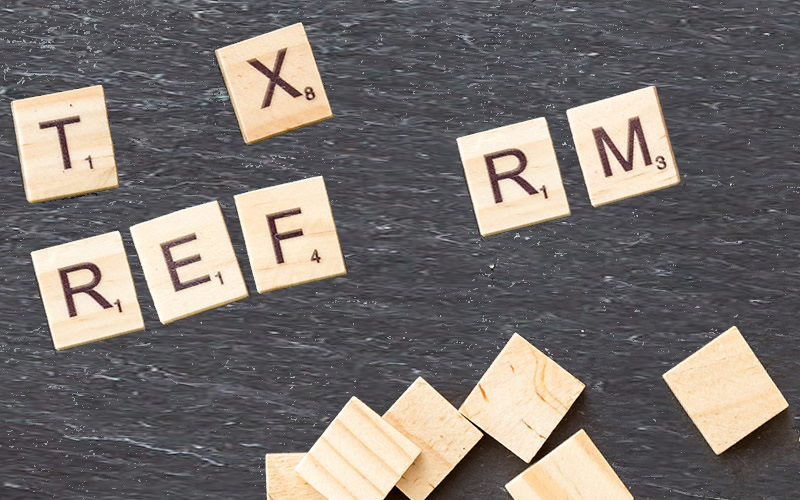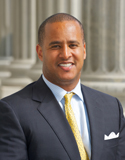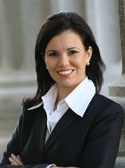
By Lindsay Street, Statehouse correspondent | A quiet but “committed” push toward extensive tax reform in the state is underway with GOP leaders hoping to pass changes by the end of the 2020 legislative session. Democrats are more skeptical.
The House Tax Policy Review Committee has worked for years on the question of how to reform the state’s tax woes. Two weeks ago, the first bill to come out of that committee was introduced by committee Chair and House Speaker Pro Tempore Tommy Pope, R-York. It seeks to tax all income-tax payers at a single 4.5 percent rate by slimming credits, deductions and exemptions to the standard deduction, personal exemption and dependent exemption.
A second bill, which calls for removal of most sales tax exemptions and lowering the tax rate, is expected to drop next week. That bill is still being worked on, but it is expected to remove most, if not all, sales tax exemptions. Because the crossover deadline has passed, neither are likely to be taken up this year.
And third, a property tax reform bill is looming for 2020, but Pope and others say they are waiting to see what happens with education reform.

“We’re in a good environment,” Pope told Statehouse Report. “We’ve got a pro-tax reform governor; we’ve got the Chamber of Commerce that’s supportive; the Speaker has always been supportive; we have a leader in Ways and Means that’s supportive; and the Senate is supportive.”
Everyone seems “more committed to addressing tax reform than I’ve seen the entire time I’ve been in the legislature,” Pope said, adding he has worked on tax reform efforts since after his election to office in 2010. He called interest now “the best it’s ever been.”
For months, senators also reviewed problems with the state tax code, which includes income, sales, and property taxes, and user fees, such as the gas tax.
“2020 will be year of the solution,” Summerville Republican Sen. Sean Bennett said Friday. “We have a very unfair tax system, a very narrow-base tax system because we have all these carve-outs and we have a system that is … not a modern system for the economy today and everybody recognizes that and sees that.”
The push has largely come from Republicans. House Minority Leader Todd Rutherford called the renewed reform effort more of “Republican hopefulness” than actually something with legs.

“I don’t think the common body can reach agreement on what we should do,” Rutherford said Friday. “Every time we get ready to do something, lobbyists get involved and we end up back where we were … (I’d be) shocked if we could do anything on a grand scale.”
Broader, fairer, flatter
The mantra among House members has been “broader, fairer, flatter,” and the legislation coming out from committee members reflects that.
Pope’s income tax bill, H. 4334, would tax all income at 4.5 percent. Currently, federally taxable income (income after federal deductions are removed) in South Carolina is taxed between 3 and 7 percent with the top bracket for all income more than $14,860.
The House sales tax reform bill is expected to remove many of the exemptions that have added up over the years.
Much of what the House ad hoc committee has focused on this roadmap for the state by the Tax Foundation, which was produced for the S.C. Chamber of Commerce late last year. Both the House committee and the Senate Finance subcommittee have heard presentations from Washington, D.C., think tank, which typically opposes tax increases, taxes on business and tax credits. Under a recommended option that seeks a 4.75 percent flat tax for all income in South Carolina, the foundation also recommends gradually phasing the school operating costs millage back onto owner-occupied residential property, fully repealing corporate income tax; and removing sales tax exemptions for items such as motor fuel, pharmaceuticals, and unprepared foods.
Proponents of such plans say removing most — or, in some cases, all — exemptions and deductions in income and sales tax helps distribute the tax burden across all categories of people. Bennett said that small businesses and single-parent households are hit hardest by the state’s tax code. He said large businesses, such as Volvo or Boeing, can qualify for tax incentives to avoid getting hit hard by property taxes, and married households get a large deduction not available to single parents. He added that single parents are more likely to pick up prepared meals, which are subject to taxes unlike groceries.
But the more liberal-leaning Institute of Taxation and Economic Policy says such moves would only lead to making an unfair system already unfair. The ITEP currently ranks South Carolina as 39th for tax unfairness (with No. 1 being the least fair), but research director Carl Davis said the “broader, fairer, flatter” argument with taxes will likely hit lower-income earners and the state revenues, which would see a broadening of a base that has experienced wage stagnation.
“South Carolina already is in a situation where higher-income families are paying a lower tax rate than anybody else, and this will only exacerbate the problem,” Davis said.
He called sales taxes “inherently regressive,” and said exemptions help to make it more fair for those who are spending nearly their full paycheck on expenses.
Removing exemptions on sales and income tax tends to draw political fire, too. And that may be the toughest sell for tax reform since 2020 will be an election year for both the House and Senate.
‘The political will’
Every two years, House members face reelection, making it almost a fact of life in the Blatt building. But in the Gressette building, half the members face reelection every four years. That means 2020 could be a year of shying from political risk in the Upper Chamber.

“The question becomes are you able to do something this big and this transformative and this different in an election year, and I’ve been there long enough to know you never say never, but I’ve also been there long enough to know that’s a pretty heavy lift,” Bennett said.
Exemptions have been added to the S.C. tax code piecemeal over the decades, and many of them have strong lobbyists behind them.
“We’ve got all kinds of groups out there that do a pretty good job of manipulating the facts to suit their own mission and will probably do a great deal of work to take a small carve-out and play it out as the worst thing ever,” Bennett said.
Pope said the House will not be immune to the complaints.
“You’re going to hear complaints from whoever has been receiving the carve out,” Pope said. “Whatever benefit somebody is getting, somebody else is carrying the burden.”
And House Democrats say they are ready to take on “flatter” taxes.
“We’re looking forward to making some tweaks but the tweaks need to be in the right direction,” Rutherford said. “Those people that have more [money], pay more … Anything that does not accomplish that objective is a waste of time.”

Some are already questioning whether the tax reform effort should be done bill-by-bill versus comprehensive reform.
Pope said the push will be done in stages, with separate bills for income tax, sales tax and, eventually, property tax.
But Tax Policy Review Committee member Rep. Mandy Powers Norrell, D-Lancaster, disagreed. She said to keep tax policy reform revenue-neutral and to help taxpayers not see an undue burden, it should be included in one large package.
Bennett said the Senate will likely package the tax bills.
“The second we start monkeying with a single piece of the tax code we further weaken the other pieces,” Bennett said. “We have had decades and decades worth of piecemeal tax policy changes.”
- Have a comment? Send to: feedback@statehousereport.com


